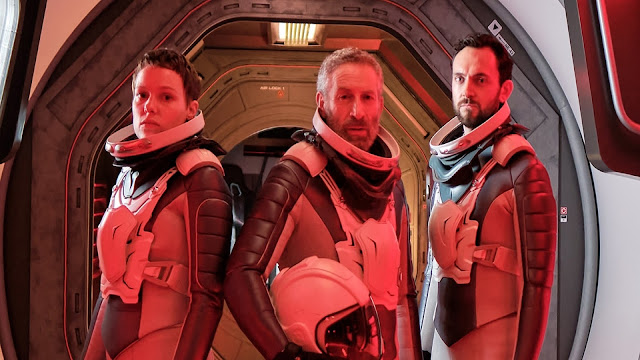Rubikon
The choice of the future
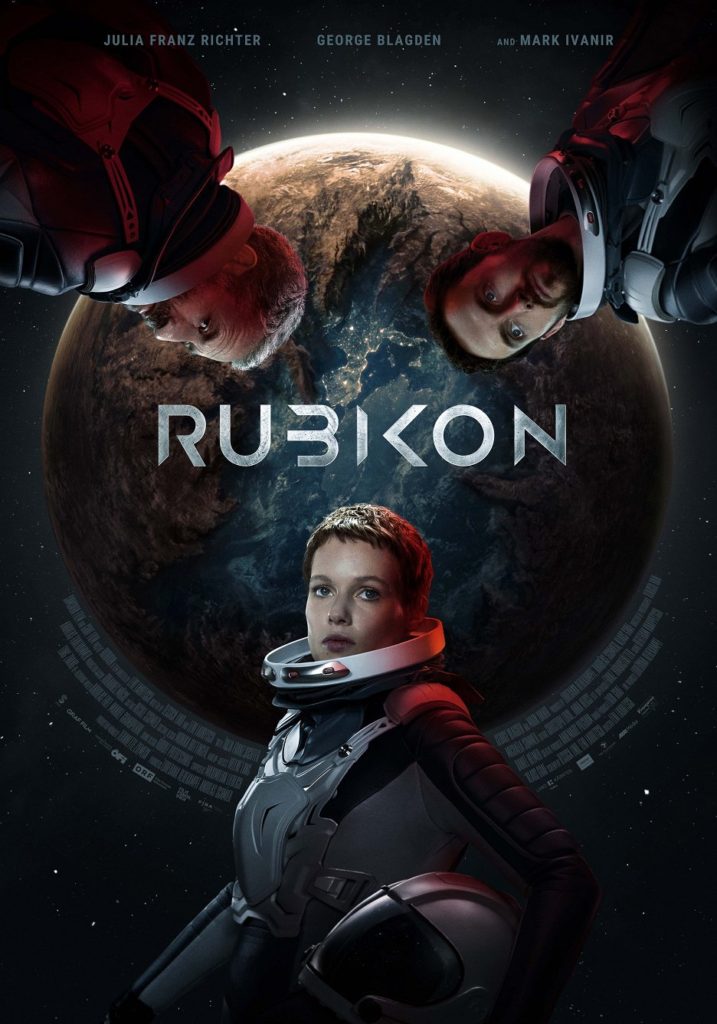
For its reach and penetrating ability, cinema is a powerful weapon to inform and prevent people about problems to be avoided. The problem is that, precisely because it is associated with entertainment, these warnings are hardly taken seriously. However, films like “Rubikon” (AT, 2022) are a powerful alert about how we live and what we are doing with our planet.
The year is 2056. The Earth’s environment had deteriorated to such an extent that only the richest could afford to live in closed oases, called “air domes”, where air was filtered from impurities. The rest of the world, spoiled by pollution and wars, had become an inhospitable and uninhabitable desert.
The countries no longer existed. Those who dominated what was left were some huge corporations, which had replaced the governments and states in the territories they occupied. Conflicts over resources and territories were resolved by armies of mercenaries at the behest of these corporations.
All attempts to find refuge in space had failed. The NIBRA corporation was the only one that maintained an orbital station, Navicon, where a team was looking for solutions to the environmental crisis.
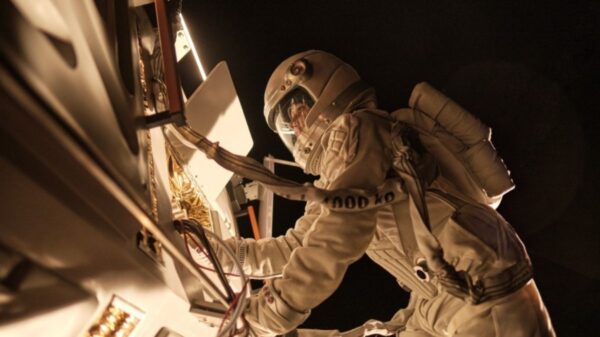
The few scientists aboard Navicon station are surprised to find that the next commander would be a military, as scientific posts were usually occupied only by civilians. However, Hannah Wagner (Julia Franz Richter) doesn’t seem to care about this, and arrives on board accompanied by environmentalist Gavin Abbott (George Blagden), to replace some crew members.
Navicon’s main research object was the algae crop for oxygen and food production, two priority needs, both in space and on Earth stifled by pollution. The replaced team returned to Earth taking base samples for replication in the labs, but during re-entry, there was loss of contact with the base and the ship. In fact, there was no more contact from anywhere on Earth, now dominated by a planetary toxic fog.
The remaining ones at the station, Hannah, Gavin and Dimitri Krylow (Mark Ivanir), are very depressed by the situation, especially the latter, because his only son had died on re-entry to Earth.
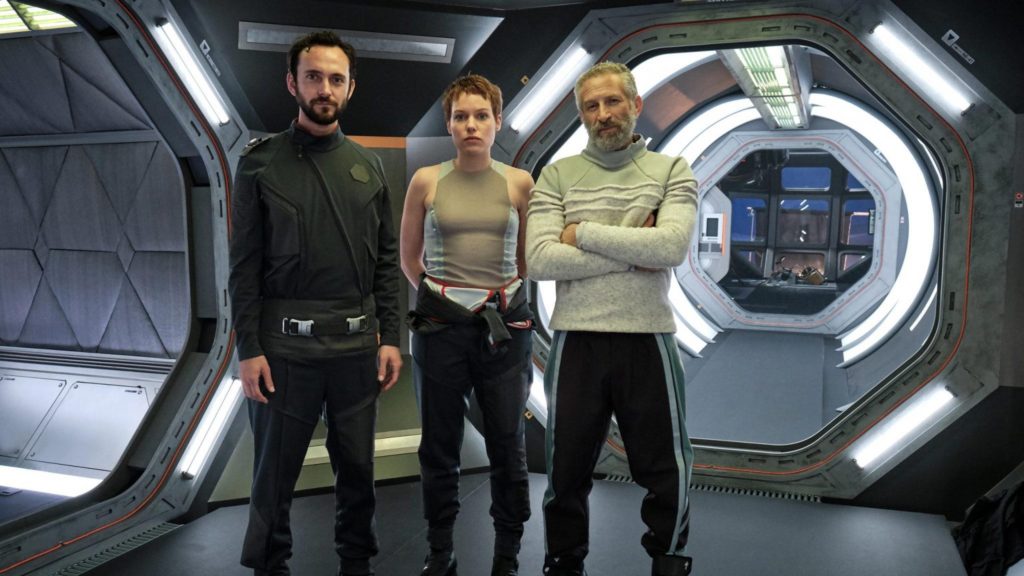
The three try to establish a routine life at the station, while seeking contact with some survivor on Earth, having to deal with their own frustrations, losses and regrets.
The situation reaches a new peak when they receive contact from Earth. A few hundred people, mostly relatives of corporate executives, had survived in a bunker, but desperately needed Navicon’s algae to survive.
Hannah, Gavin and Dimitri need to decide whether to risk everything in a very dangerous re-entry into the Earth’s atmosphere or whether they keep their small group at the station, especially after they discover that the woman was pregnant!
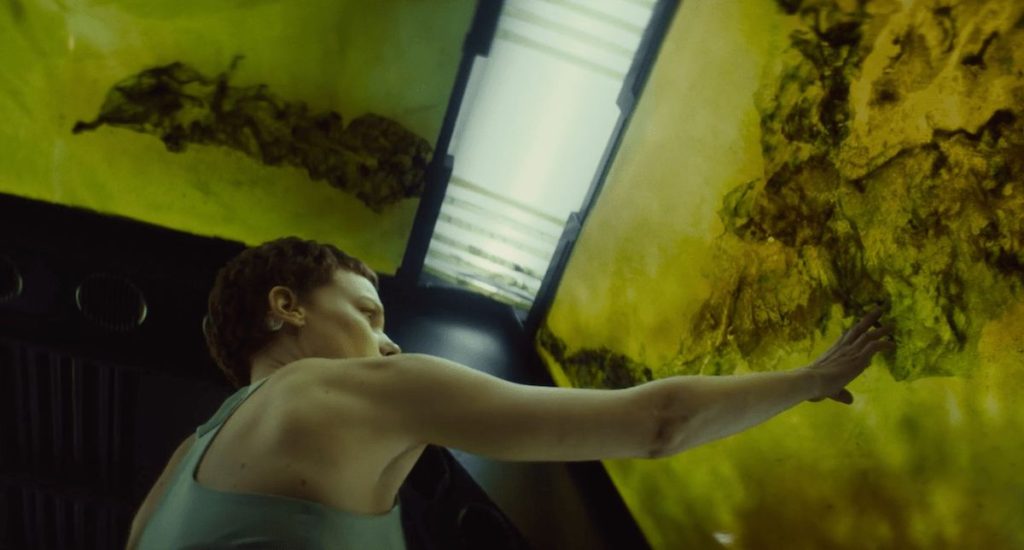
“Rubikon” is a very interesting film, not only for the theme that is very current, but also for exploring very old dilemmas, which reflect well the human condition. What to do in a crisis situation, the survival of the group or the collectivity? What is the most important reason to live, or to risk your own life?
The title of the film refers to the expression “cross the Rubicon”, which means making an important and challenging decision. The origin was the act of Julius Caesar, in the year 49 BC, who confronted Roman legislation and crossed the river with his legions. At the time he would have said the phrase “alea jacta est” (the luck is cast), which marked the irreversibility of his decision.
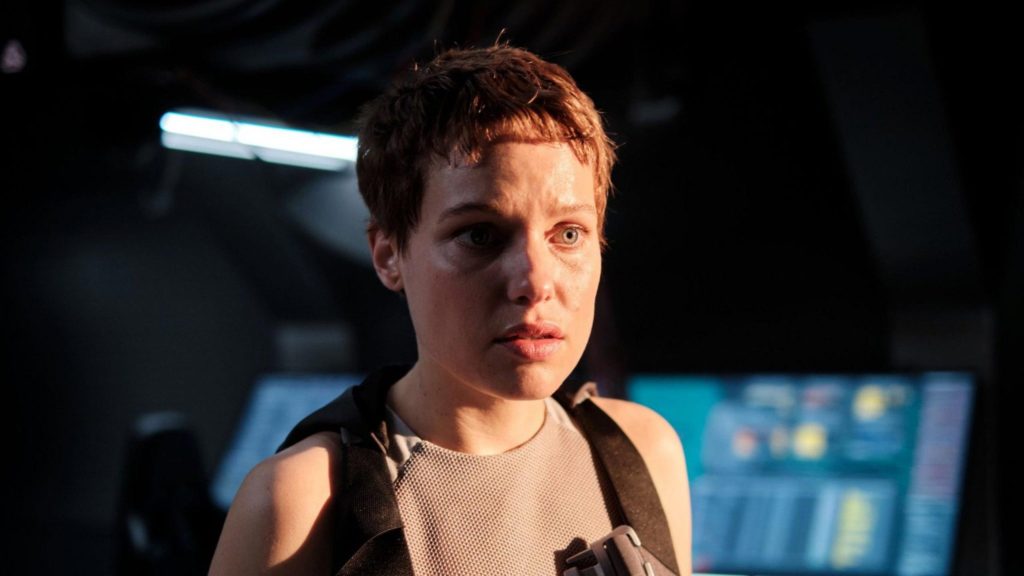
At first, I was surprised that an Austrian film was spoken in English, but in addition to having a clear commercial interest, it would be normal for a multinational team to use this language as a common means of communication. In fact, the cast itself is multinational, since Julia Franz Richter is Austrian, George Blagden is English and Mark Ivanir is Ukrainian. The rest of the cast is Nigerian, Russian, Japanese and German.
The film was very well directed by the young Austrian director Magdalena Lauritsch, only 24 years old, who also participated in the preparation of the script. The scenarios are exquisite, and the special effects very well elaborated.
“Rubikon” had a world premiere on July 1, 2022, but has not yet set a date in Brazil.

